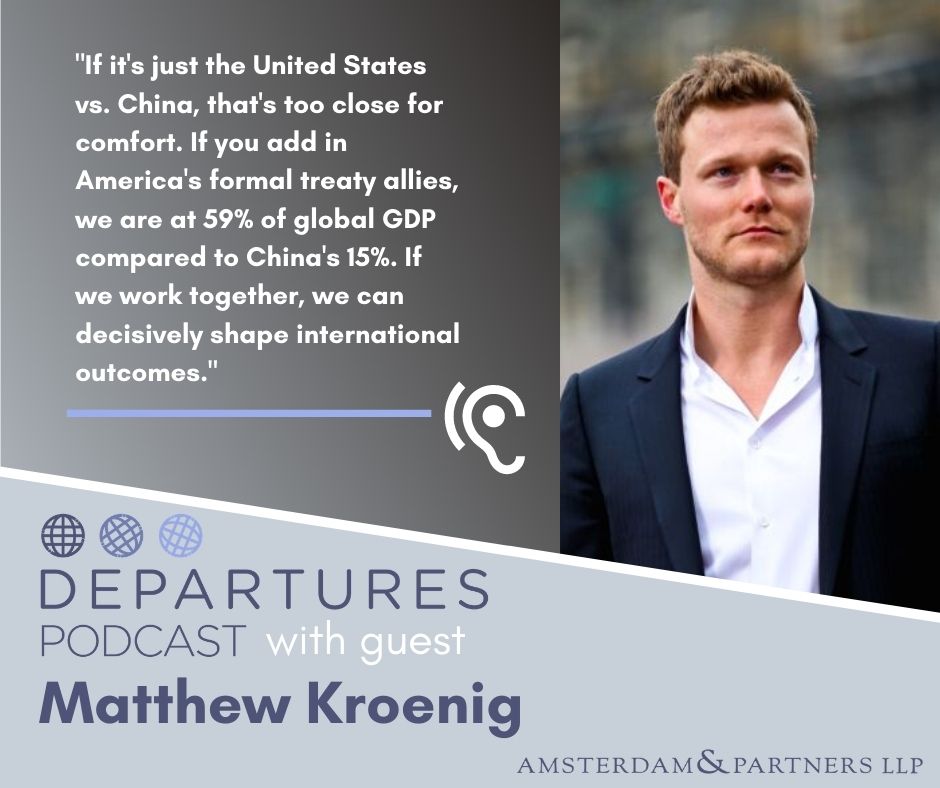Departures Podcast with Matthew Kroenig

The United States has enjoyed a position of relative primacy in the international system since the end of World War II, but are those days numbered as China and other powers continue to rise? Or does Washington still have a few more decades left in the tank?
Matthew Kroenig, a political scientist and the Deputy Director of the Atlantic Council’s Scowcroft Center for Strategy and Security, has a decidedly more optimistic view of the capacity of American democracy to help the country prevail in the new rivalries with China and Russia.
On the podcast, Kroenig discusses these questions by taking a critical look at the strengths of weaknesses of democracies vs. autocracies by highlighting seven different confrontations between rivals, from from ancient Greece to the Cold War.
In his new book, “The Return of Great Power Rivalry: Democracy versus Autocracy from the Ancient World to the U.S. and China,” he argues that although democracies do not always win wars, they do have outsized strategic advantages in comparison to autocracies, from culture to innovation to the financial strength of a world reserve currency.
When you are “the capital of capital,” Kroenig argues, you have a major advantage in your ability to deficit spend and build up your capabilities, and we’ve always seen international finance exist in more open societies, from Venice to Amsterdam to London to Wall Street.
“Autocracies historically don’t do well when it comes to international finance,” Kroenig says. “People don’t trust investing in autocratic countries, and it’s also because to have a financial system you have to allow the free flow of currency, money, in and out of your borders, and autocracies don’t like allowing things flowing in and out of their borders.”
In this regard, he points out, China is not even particularly trying hard to make the RMB a reserve currency, while President Xi appears to be prioritizing political control over economic growth by increasing the Communist Party’s control over the economy.
“China is spending more now on internal security than it’s military,” says Kroenig. “They are more afraid of the people of Hong Kong than they are of the US Department of Defense.”
Numerous others we’ve had on the podcast take the opposite view, that we are witnessing the final days of American hegemony. Time will tell us who is right, it seems.











